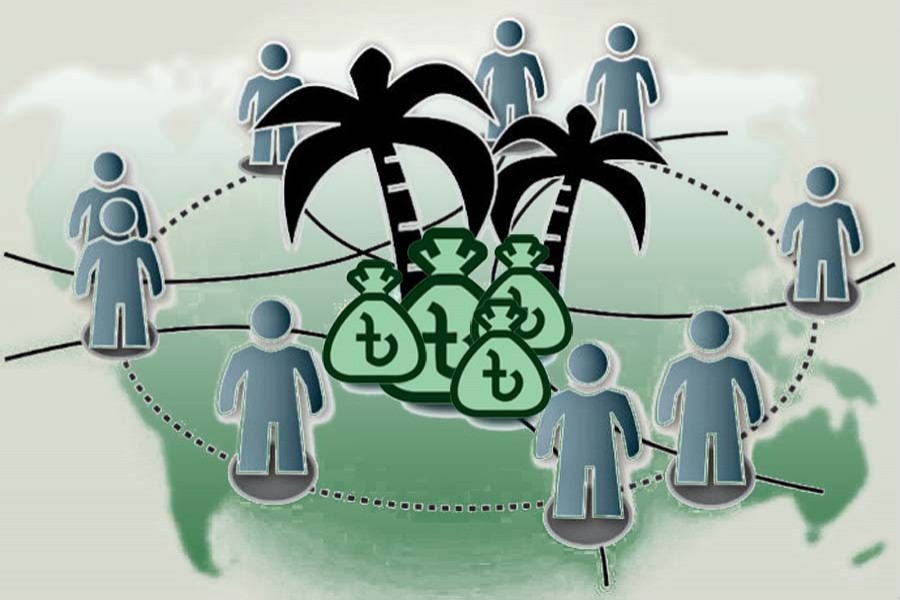
Published :
Updated :

The concept of offshore banking in Bangladesh is not new and the same is becoming very popular among the practitioners and business people here due to its overwhelming capacity to help unlock international financial settlement.
By its name and structure, such type of banking can play pivotal role both in domestic and international territory. Such banking facility handles currencies other than the local currency with customers finding foreign currency necessary instead of local currency. Offshore banking also helps ease international transaction instead of domestic transaction.
The offshore banking activities is taking new shapes in Bangladesh and facing some suddenly surfaced challenges here. To face Bangladesh's international trade participants' growing demand of foreign currency, offshore banking appears to be at its peak to be guided with renewed and re-energised look by the regulators.
The regulatory authority is formulating a guideline with the recent changes in and challenges of the industry, although talk in this regard is being heard for long. Although almost all the banks in the country have offshore banking licence, only 31 banks are actively participating in the business and most of them are doing business on the discounting of local import and export bills, which is not the core function of offshore banking.
In fact, offshore banking should be a separate window of a bank that will remain engaged in arranging foreign currency by borrowing, depositing and placing the same from international foreign currency holders. In the age of internationalised economy, the foreign currency reserve of a commercial bank here is very poor because of the slowing export operations throughout the bank, lowering remittance routing and sluggish foreign direct investment in Bangladesh.
Offshore Banking unit of a bank can boost the foreign currency reserve of the bank by engaging and participating in the international foreign currency market. A bank grows further strong as it arranges foreign currency for its customers who run their international transaction through the bank. Not only that, offshore banking is free to lend in foreign currency, receive deposit in foreign currency and do cross border transaction.
Since its inception in Bangladesh in 1988, offshore banking is being run with the circular of the erstwhile Banking Control Division (BCD) that is very concise in magnitude but still very informative and elaborated in information. On top of that, Bangladesh Bank issued two circulars by permitting the offshore banking units of the local banks to finance the import and export bills of the local businesses.
But there lacks lending, working and treasury guidance for the offshore banks in Bangladesh. Because, offshore banks are basically borrowing foreign currency funds from abroad and creating debt burden on the economy. If the debt to the overseas lender is beyond the capacity and control, it will be a mess and thorn of the throat. So a proper, studied and time-befitting guideline from the regulators is the demand of the time.
By and large, offshore banking helps global banking facilities stay in the local territory. It is not only a banking concept, but also a key to unlocking any padlock on the route of international banking.
Mohammad Rafiqul Islam, CDCS, is Head of Learning and Development, NRB Bank Limited and former Head of Offshore
Banking, Bank Asia Limited.
m.rafiqulislam@nrbbankbd.com


 For all latest news, follow The Financial Express Google News channel.
For all latest news, follow The Financial Express Google News channel.